Hong Kong pro-democracy protesters return to streets
- Published
The BBC's John Sudworth said turnout had been lower than expected
Thousands of pro-democracy activists have returned to the streets of Hong Kong for their first big rally since mass protests last year.
But the number of protesters - put by organisers at 13,000 but by police at half that figure - was far lower than the earlier demonstrations.
Their key demand is fully democratic elections for the territory's leader.
A large police presence was in force to prevent demonstrators from occupying key areas of Hong Kong.
But the protesters did not carry out a repeat of the occupations that shut down parts of the city for more than two months last year.
Candidate vetting
Last year's Occupy demonstrations at their peak were attended by tens of thousands of people from all walks of life. There were later violent clashes with police, and the final protest camp was dismantled in December.
One organiser of the latest march, Daisy Chan, told the South China Morning Post, external that although the turnout was lower than expected it "only shows that Hong Kongers are no longer satisfied with conventional ways of protest" and people were taking up "new ways to pressure the government".
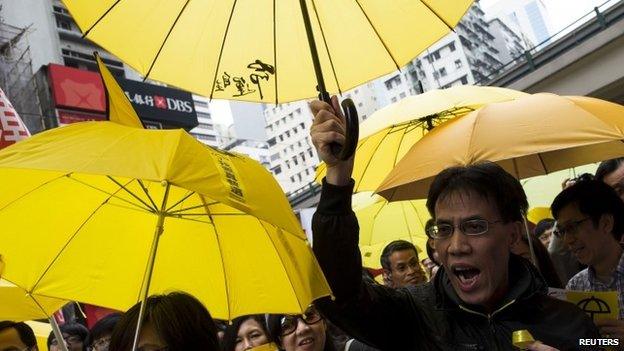
One of the main demands of the protesters is universal suffrage
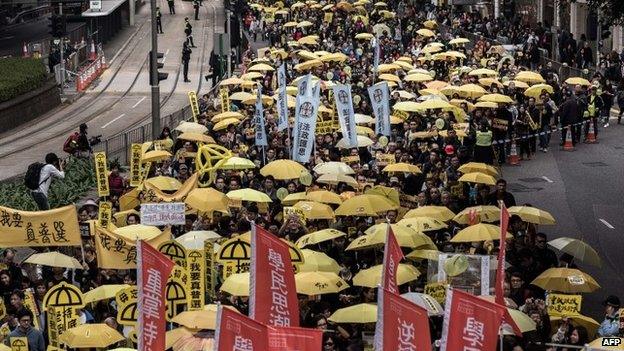
Several thousand protesters marched through the city's upmarket shopping and financial districts
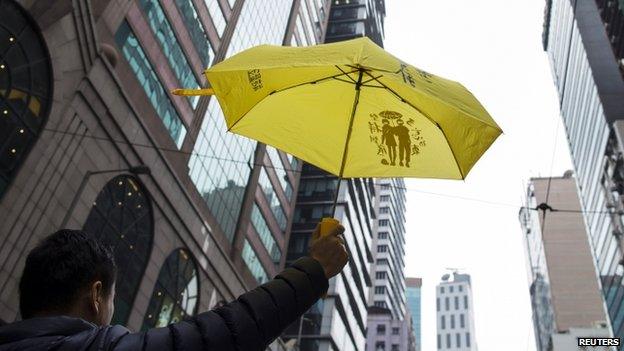
Many of the demonstrators held yellow umbrellas, the symbol of earlier protests
The protesters were watched by about 2,000 police officers as soon as they began their march through the city's upmarket shopping and financial districts.

At the scene: Carrie Gracie, BBC China editor
Those who took to the streets in Hong Kong said they needed to stand up and be counted, if only to protect existing freedoms. That means exercising the freedom to march even if no-one in power is listening.
Some of the younger marchers put the low turnout down to fatigue, saying large numbers would pour back on to the streets when the moment was right. But one 60-year-old cautioned against youthful optimism, warning that Hong Kong would have to wait for the downfall of the Chinese Communist Party before seeing genuine democracy.
That party has comfortably outlived many predictions of its demise. It is watching events in Hong Kong closely and will see a low turnout as vindication of its strategy to avoid force and overt direction of events while making no compromises on political reform.
At this point, Beijing will feel it has won the battle - if not yet the war - and is likely to carry on shaping Hong Kong's political destiny according to its own design.

China has promised the semi-autonomous territory direct elections in 2017, but ruled that candidates had to be vetted by Beijing.
Pro-democracy legislators - who hold about 40% of the seats in the Legislative Council - strongly oppose the move.
Protester Julia Choi told the AP news agency that pro-democracy candidates "would not even be nominated, so this is pseudo-universal suffrage, we do not have the rights to elect who we want".
Many demonstrators carried yellow umbrellas - the symbol of the political campaign. A large banner caricaturing Hong Kong's Chief Executive CY Leung read: "Reject fake democracy, we want real universal suffrage."
But speaking on local radio on Sunday, Lam Woon-kwong of the Executive Council, Hong Kong's top policy-making body, warned protesters: "You can't threaten the central authorities."
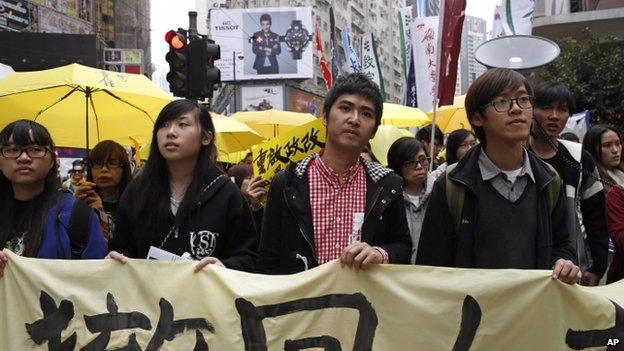
Many protesters complain than the government has routinely ignored their demands
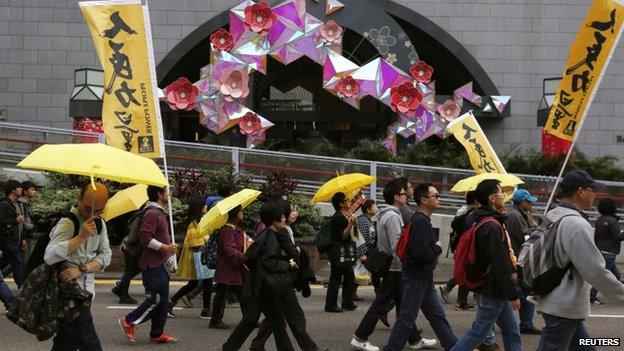
Banners carried by the demonstrators demanded more people power